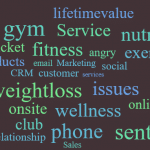Moms are one of the most popular target customers for wellness businesses — and here’s what you should realize about them:
1) Moms multitask…and they don’t always feel good about it.
Moms at almost every age feel pulled in thousands of directions daily. They’re usually in juggling work responsibilities, immediate and extended family commitments, and church, civic and other community activities.
And they almost always feel that while they’re trying to do it all, they’re doing little of it well. They often feel that everyone’s getting the short end of the stick.
Time-efficient products and services help relieve moms’ guilt and worry about spreading themselves too thin. Products and services that help moms achieve more balance in their lives are also well-received.
Examples
- A “Healthy Meals In A Hurry” workshop
- Exercises that moms can do while standing in the checkout line
- Sanity-saver time management seminars that help reduce stress
- Mind/body programs that help participants calm and center their thinking
2) Moms want their families to “be all they can be.”
They want their spouses, partners and children to lead fulfilling and rewarding lives. They want their kids to be confident, happy, and healthy, empowered by both classroom learning and other enrichment activities to reach their fullest potential.
And moms want to share enriching and emotional experiences with their kids. To fulfill this role, moms often go far beyond what you’d expect from a typical customer. For example, they often demand a strong voice in how the kid-oriented programs they choose actually operate.
Finally, while we’ve seen an upsurge in purposeful play – products and services specifically designed to get kids more active – “play for play’s sake” is making a strong return.
Examples
- Kid fitness programs, both general fitness and sports-specific
- Wellness-oriented programming that includes creative or artistic elements (dance and movement, for example)
- “Mom & me” programs – with careful design and appropriate marketing, these can be appropriate for very small kids through teens and offer a joint experience moms often appreciate
3) Moms feel accountable for family health.
“Dr. Mom” is one of the most significant mom roles. In most families, moms are the primary architects of family wellbeing. They think about prevention – how to keep everyone healthy, well, and full of energy. And when family members have health issues, it’s usually mom who orchestrates what happens next.
Some of the biggest mom concerns about family health:
- How to get a spouse or partner to change lifestyle habits for the better
- How to keep kids active when the siren call of television, computers, and Nintendo lures them into couch potato territory
- How to teach kids healthy eating habits when they encounter what we’ll charitably call “diverse” food choices almost everywhere they go
- How to get healthy meals on the table with limited time and unpredictable schedules
- How to foster kids’ emotional wellbeing in a world that can cause great stress, uncertainty and fear
- How to teach kids about healthy living without being tuned out
- How to address their own health (or improve their overall wellbeing) despite all the demands on their time
To tap into these concerns, focus on solutions in developing your wellness products and services. Incorporate the other principles we’ve identified – for example, the desire of many moms to participate with their kids in activities.
Examples
- A “Mom & Me: Snacks On The Fly” session where moms and kids together try easy-to-fix healthy snack recipes
- Kits with fun toys that encourage active play among parents and kids – for example, soft rubber balls, frisbees, jump ropes, and more
- Leadership programs that help build confidence and self-esteem – for example, using teens as mentors to teach healthy lifestyle habits to younger kids
4) Moms respect value.
When moms make purchase decisions, they’re looking for the perfect combination of quality, results and price. They research important purchases – and important for a mom isn’t just a big-ticket item. It’s anything she thinks will help address the issues we’ve outlined here.
How do moms research? Research can be formal – for example, looking at Consumer Reports or searching for information on the internet. It’s also often informal – for example, checking with other moms for their recommendations and experiences.
Examples
- Establish a customer circle of your best customers and share the latest and greatest news and trends, product samples and tips, etc., with them
- Use customer testimonials to communicate how well your services work
- Make their lives easier (remember how busy they are?) by making every transaction painless – whether it’s a return, a purchase, a billing issue.
5) Moms are women with kids.
Notice we didn’t mention an age? The concerns of moms in their 20s and moms in their 40s are very similar. The concerns of women in their 20s and women in their 40s are quite different. This is especially important because the average age at which women first bear children continues to increase and more women are first giving birth in their 40s.
Traditional “women’s concerns” are evolving. For example, concerns about the health risks of obesity co-exist with increased acceptance of heavier weight among many women. This means that weight loss matters to some women — but a “fit at any size” approach may have more appeal for other women.
The bottom line: moms retain an identity of their own, as women, separate from their status as mothers. And regardless of age, certain concerns and priorities are common among most moms. Keep both dimensions in mind.


